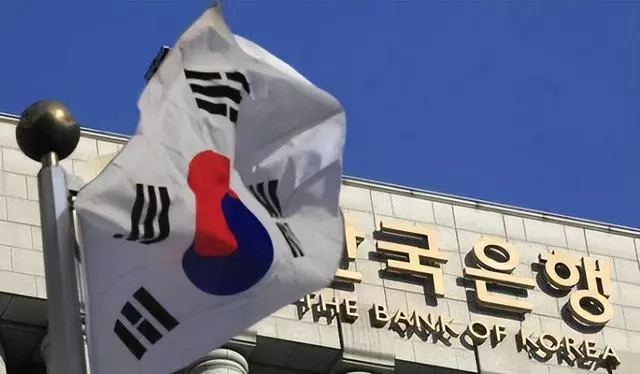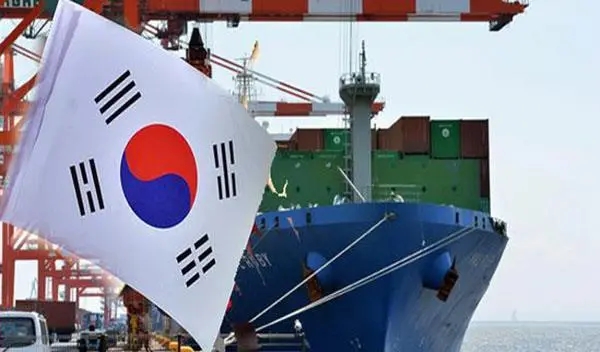As of July 2023, South Korea's exports have fallen for 10 consecutive months, Yonhap news agency reported. From March 2022 to May 2023, South Korea's foreign trade deficit continued for 15 months.
Analysts point out that in 2023, South Korea's economy is caught in the predicament of a continuous decline in exports, a sluggish manufacturing sector, and weak growth. By the global high inflation, high interest rates and trade fragmentation trend, South Korea's export decline in the short term is difficult to achieve a reversal of the economic recovery is difficult.
Out of the global top ten
South Korea's Ministry of Industry, Trade and Resources recently released data showing that South Korea's exports in July for 50.33 billion U.S. dollars, a year-on-year decline of 16.5% for the 10th consecutive month of decline, since May 2020, the largest decline in the record. South Korea's core industry - information and communications industry exports amounted to $ 14.61 billion, a year-on-year decrease of 24.3%, the 13th consecutive month of decline; the main export products - chip exports in July amounted to $ 7.54 billion, a year-on-year decline of 34%, the 12th consecutive month of decline. 12 months of decline. From a regional perspective, South Korea's exports to China, the United States, ASEAN, the European Union and Japan and other five major export countries or regions have declined, respectively, 25.1%, 8.1%, 22.8%, 8.4% and 5.9%.
Affected by the decline in exports, South Korea's overall economic situation is not optimistic. S&P Global released the manufacturing purchasing managers' index showed that South Korea's manufacturing index in July was 49.4, below the 50-point glory line, for 13 consecutive months in a state of contraction.

South Korea's nominal gross domestic product will be about $1.67 trillion in 2022, down 8 percent year-on-year, the biggest drop since the 2008 financial crisis, according to data disclosed by the Bank of Korea in July, Yonhap news agency reported. South Korea's economy ranked 13th in terms of size globally, falling out of the global top ten.
Weak global demand
"South Korea's economy has a relatively homogeneous industrial structure, with manufacturing industries such as semiconductors, chemicals, electromechanical and transportation equipment at the backbone of the country's economy. At the same time, South Korea is highly dependent on exports of externally-oriented economies, highly sensitive to global market demand. Korea's sluggish exports are closely related to the current slow recovery in global trade." Jiang Haoqiu, a professor of international disciplines at the Graduate School of International Relations of Korea Central University and a special researcher at the Center for World Economic Cooperation of the Institute of International Studies of Shandong University, analyzed in an interview with the newspaper that weak global demand is an important reason for South Korea's poor export performance. In the context of the global economic slowdown, the global semiconductor industry are in a downward cycle, the market demand for electronic products and intelligent production in other countries to reduce, especially semiconductors, chips and other electronic communication industry products market demand is low. In addition, at present, energy and other international commodity prices are high, the Federal Reserve's strong interest rate hike led to a sharp depreciation of the Korean won, these external factors push up the cost of South Korea's manufacturing industry, restricting the scale of growth of South Korea's exports and trade.
The Financial Times reported that the U.S. industrial protection policy to force South Korea to adjust the export structure of its semiconductor, automobile industry and other pillar industries to bring great pressure, may lead to South Korea's economy is in trouble.
Jiang Haoqiu said that in recent years, the United States in order to safeguard their own interests, one after another enacted the "Inflation Reduction Act," "Chip and Science Act," etc., to take trade restrictive measures on South Korea's semiconductors, automobiles, and other advantageous products exports to exert political pressure to further drag down South Korea's export growth.
Or will be under pressure for a long time

In the face of the continuing decline in exports, the plight of weak economic growth, the South Korean government has made a series of moves. South Korea's Financial Services Commission recently said that from September, through public and private banks to provide exporters with a total of 23 trillion won of financial support, while other measures will be taken to ease the difficulties of trade financing.
According to Yonhap News Agency, the South Korean government held an "emergency meeting of economic governors and export and investment countermeasures meeting" in June, said that by 2027, the South Korean government will provide financial support to the private sector on the scale of 5.6 trillion won to support the transformation of high scientific research results and the establishment of cooperative entrepreneurship support programs.
"It is not easy for South Korea to reverse the decline in exports and create new momentum for economic development." Jiang Haoqiu analysis, said that in the short term, South Korea's dominant industries exports are not vibrant, affecting the operation of the relevant industrial chain and the overall trend of the economy, exacerbating the economic downturn and trade deficits of the "double helix" crisis, which may affect South Korea's economic growth of endogenous power. In the long run, South Korea's resource endowment is relatively limited, economic growth is constrained by the decline in the total population and the aging trend of the population structure, and the rapid decline in the working population brought about by the low fertility rate may weaken the potential for economic growth in South Korea. In addition, under the environment of declining international political and economic stability, rising protectionism and unilateralism, and challenges to the global trading system, South Korea's quest for economic breakthroughs may be hampered by a number of external factors, and the South Korean economy may come under pressure in the long run.

